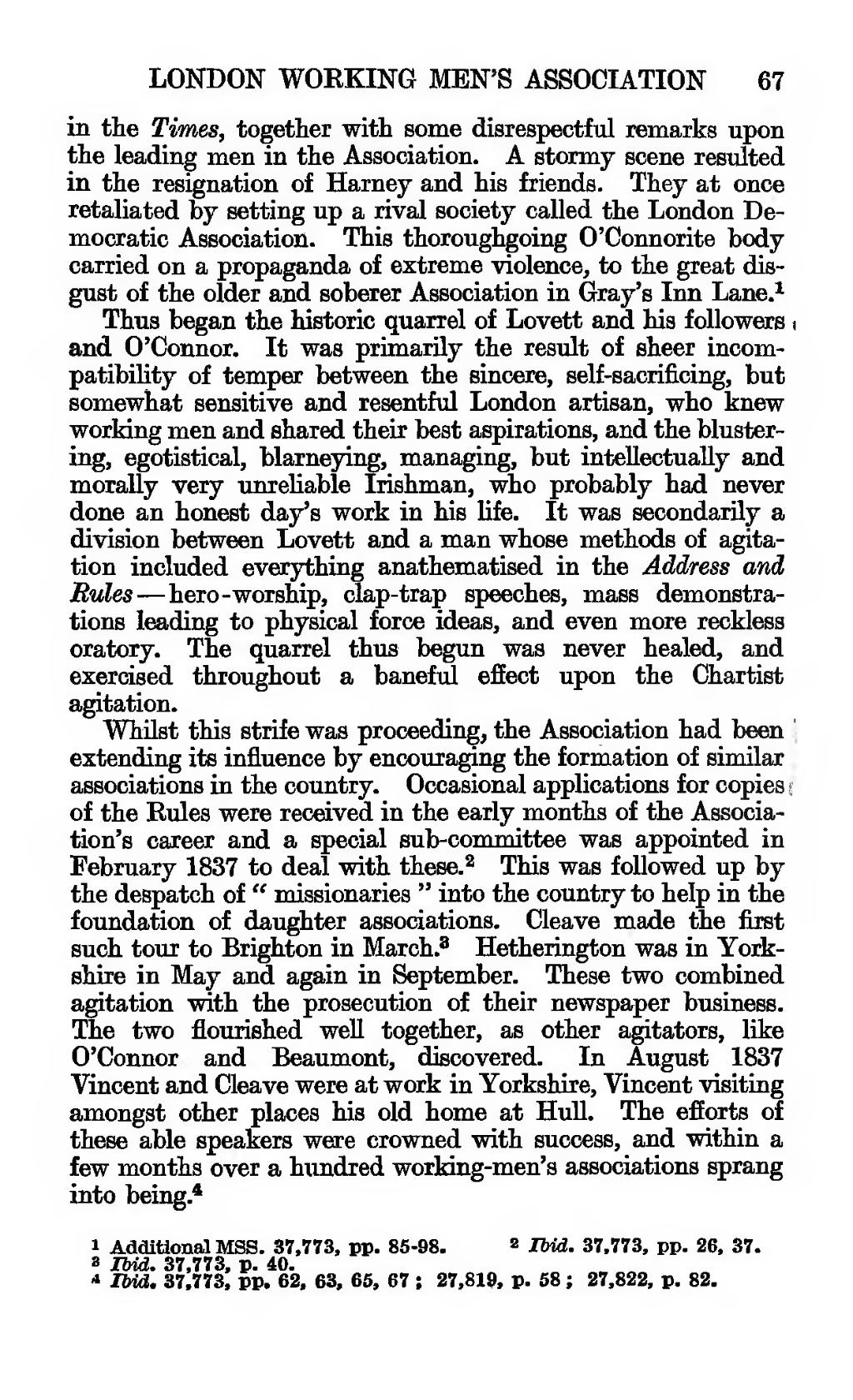in the Times, together with some disrespectful remarks upon the leading men in the Association. A stormy scene resulted in the resignation of Harney and his friends. They at once retaliated by setting up a rival society called the London Democratic Association. This thoroughgoing O'Connorite body carried on a propaganda of extreme violence, to the great disgust of the older and soberer Association in Gray's Inn Lane.[1]
Thus began the historic quarrel of Lovett and his followers and O'Connor. It was primarily the result of sheer incompatibility of temper between the sincere, self-sacrificing, but somewhat sensitive and resentful London artisan, who knew working men and shared their best aspirations, and the blustering, egotistical, blarneying, managing, but intellectually and morally very unreliable Irishman, who probably had never done an honest day's work in his life. It was secondarily a division between Lovett and a man whose methods of agitation included everything anathematised in the Address and Rules—hero-worship, clap-trap speeches, mass demonstrations leading to physical force ideas, and even more reckless oratory. The quarrel thus begun was never healed, and exercised throughout a baneful effect upon the Chartist agitation.
Whilst this strife was proceeding, the Association had been extending its influence by encouraging the formation of similar associations in the country. Occasional applications for copies of the Rules were received in the early months of the Association's career and a special sub-committee was appointed in February 1837 to deal with these.[2] This was followed up by the despatch of "missionaries" into the country to help in the foundation of daughter associations. Cleave made the first such tour to Brighton in March.[3] Hetherington was in Yorkshire in May and again in September. These two combined agitation with the prosecution of their newspaper business. The two flourished well together, as other agitators, like O'Connor and Beaumont, discovered. In August 1837 Vincent and Cleave were at work in Yorkshire, Vincent visiting amongst other places his old home at Hull. The efforts of these able speakers were crowned with success, and within a few months over a hundred working-men's associations sprang into being.[4]
